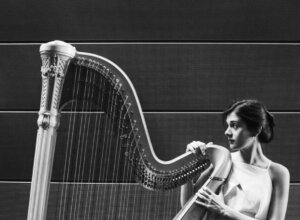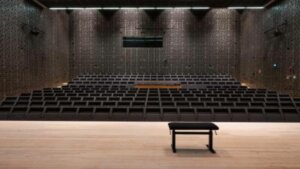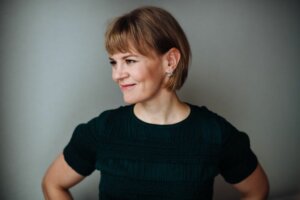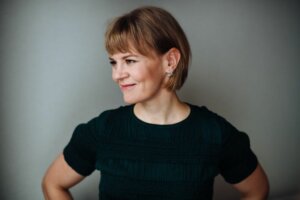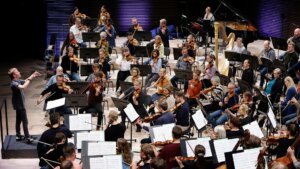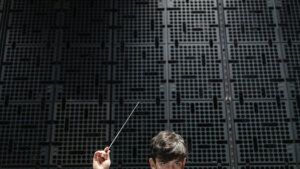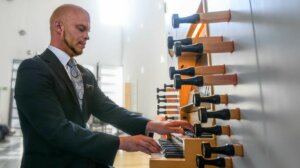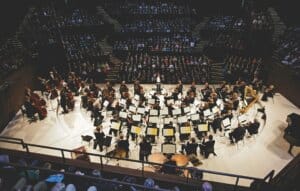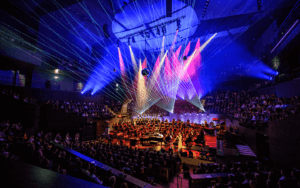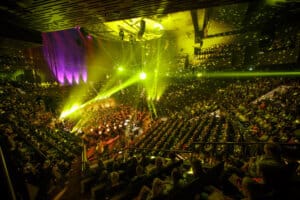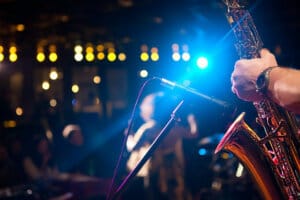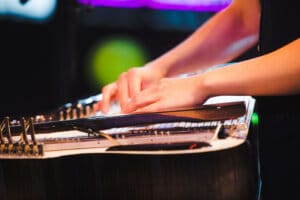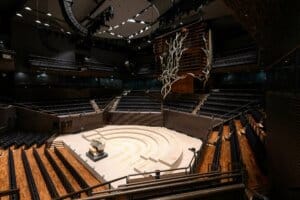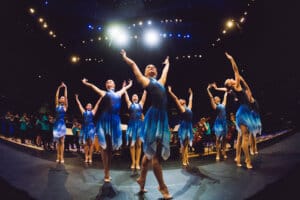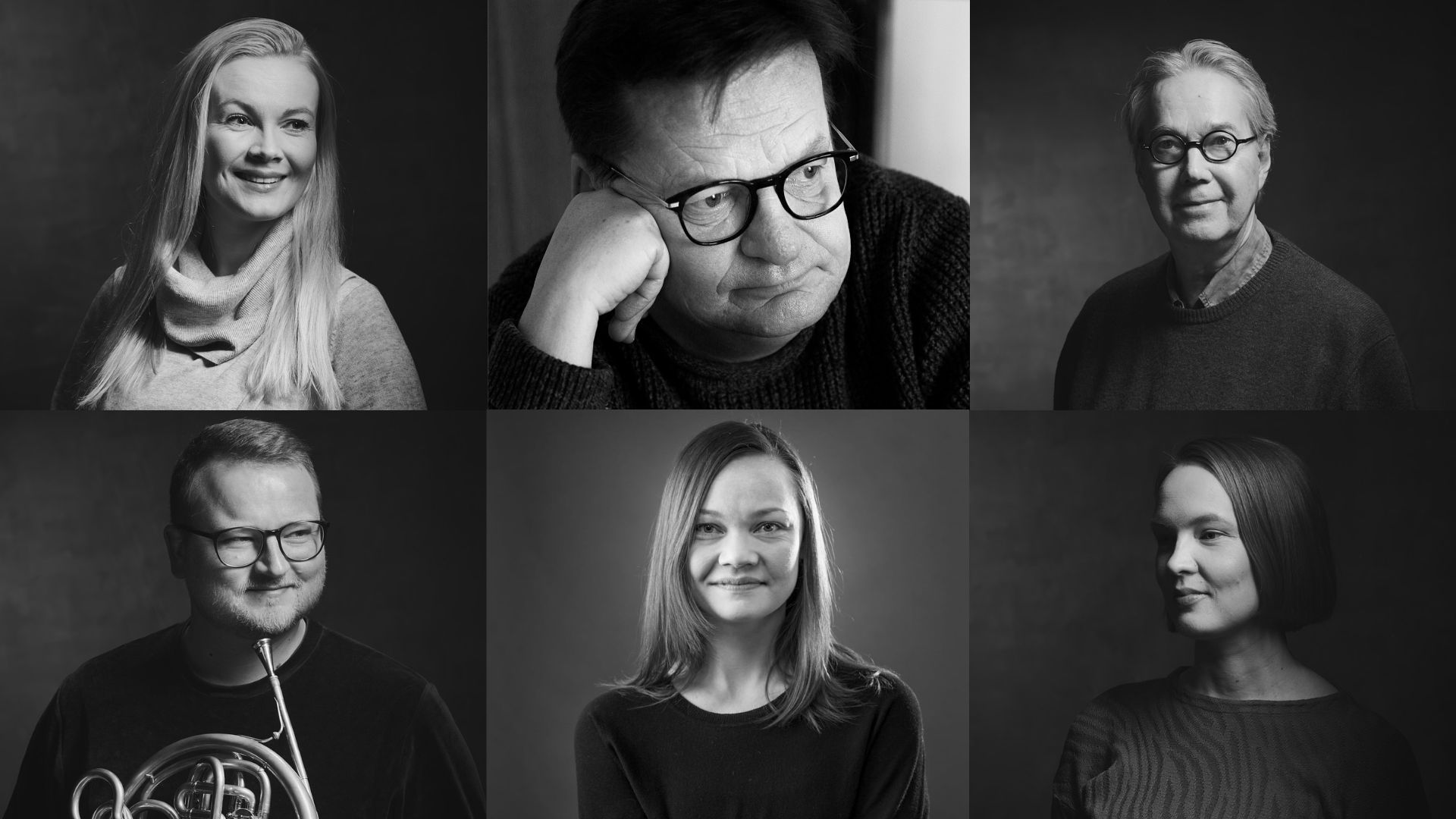
Estimated duration
1 h 30 min., no intermission
Organizer
Helsingin kaupunginorkesteri
Our woodwind Encounters Club opens with a rarely heard Czech gem. The evening will culminate with Dvořák's Nocturne.
Niamh McKenna, flute and piccolo
Paula Malmivaara, oboe
Harri Mäki, clarinet
Heikki Nikula, bass clarinet
Noora Van Dok, bassoon
Ville Hiilivirta, French horn
Leoš Janáček: Mládí (1924) for wind sextet
Witold Lutosławski: Trio (1944–45) for winds
Antonín Dvořák (arr. Ville Hiilivirta): Nocturne in B major, op. 40 (B. 47) for wind sextet
Czech composer Leoš Janáček (1854–1928) composed his wind sextet Mládí (“Youth”) in his mature late period at the age of 70 in his home village of Hukvaldy. The work has been interpreted as an old man’s memoir of his youth. In the third movement, Janáček quotes from the work Pochod Modráčků (“March of the Bluebirds”), composed the same year, in which he recalls his youth as a choirboy at a Brno monastery: “The little singers of the monastery in their blue cassocks marched joyfully – they looked like bluebirds.” In this rarely heard work, the traditional woodwind quintet is complemented by a sixth instrument: the bass clarinet. The work seemed appropriate for the evening’s concert programme, and the addition of the bass clarinet gives the otherwise rather treble-heavy ensemble a bass boost.
Witold Lutosławski (1913–1994) fled after the Warsaw Uprising in August 1944 to the town of Komorów. There, in the attic of his uncle’s house, he composed his Trio for oboe, clarinet and bassoon. Lutosławski later wrote that he chose these three wind instruments because such an ensemble was “the simplest way” to realise his “research into pitch, rhythm and the organisation of sounds.”
Janáček’s compatriot Antonín Dvořák (1841–1904) began composing his Nocturne as the slow movement, Andante religioso, of his early String Quartet No. 4 in E minor (1870), but eventually the Nocturne developed into an independent work for string orchestra. The work was premiered under the composer’s baton at the Crystal Palace in London on 22 March 1885. This arrangement for wind sextet (flute, oboe, clarinet, French horn, bass clarinet and bassoon) is by Ville Hiilivirta and will be given its world premiere at the Encounters Club.
Free admission – welcome! The programme begins at 8pm after the evening’s concert, and the café is open until 9:30pm.
Tickets to Musiikkitalo concerts and other events are available to purchase on our website, by telephone and at our physical box office.
Book tickets for 10–20 or more people is by contacting group sales service by email at ryhmat@musiikkitalo.fi or by telephone on 0600 411 101 (Monday to Friday, 9:00–15:00).
How about a cup of coffee, a bite to eat or a glass of bubbly during the interval? Order your drinks in advance to beat the queues and make the most of your concert visit. Interval refreshments are not available at all concerts.
Our location could not be more central or easier to get to. Almost all forms of Helsinki public transport stop right outside our doors, cycle parking is provided at all our entrances, and Aimo Park Finlandia, our nearest multi-storey car park, offers lift access directly to our main foyer.
At Helsinki Music Centre we are proud to be an accessible and welcoming place for everyone. Tactile handrails and signage have been fitted across the building, and there are tactile indicator strips on the floor too to guide partially sighted and blind visitors. Induction loops are always available, and guide or companion dogs are of course permitted within the building.
Concert Hall
The route to your seat is always printed on your ticket. Check the door number to find out which entrance to take. The seating areas are marked with letters. There is level access to all wheelchair seats from the main entrances. Don’t worry if you’re not familiar with our venue – our staff are always on hand to help you find your seat.
Black Box, Camerata and Sonore
Use the row number printed on your ticket to find your seat. Wheelchair seats are situated on the same level as the entrance. Don’t worry if you’re not familiar with our venue – our staff area always on hand to help you find your seat.
Unallocated seating
Please choose your seat on the day.
Floor plans
You can view our floor plans before your visit.
Cloakroom
We ask you to leave your coat and any larger items in the cloakroom. The cloakroom is free of charge.
Latecomers
Latecomers will be asked to wait until a suitable break in the performance or admitted after the interval.
Photography
You are not permitted to record concert performances at Helsinki Music Centre. However, you may take photographs before and after the concert and during applause. Individual concert organisers may have their own, more detail guidance regarding recording and photography.
Dress code
We’re happy to say we have no dress code at Helsinki Music Centre, and we positively encourage you to come as you are. However, we would be grateful if you could avoid wearing strong perfume during your visit so that people with asthma and fragrance sensitivity can enjoy our concerts symptom free.
